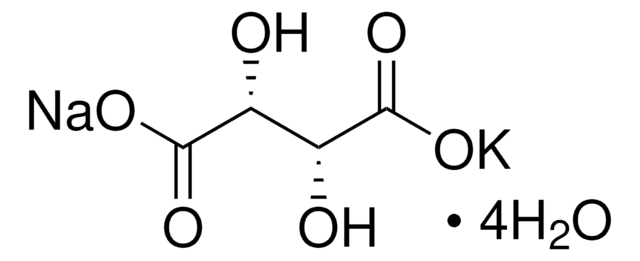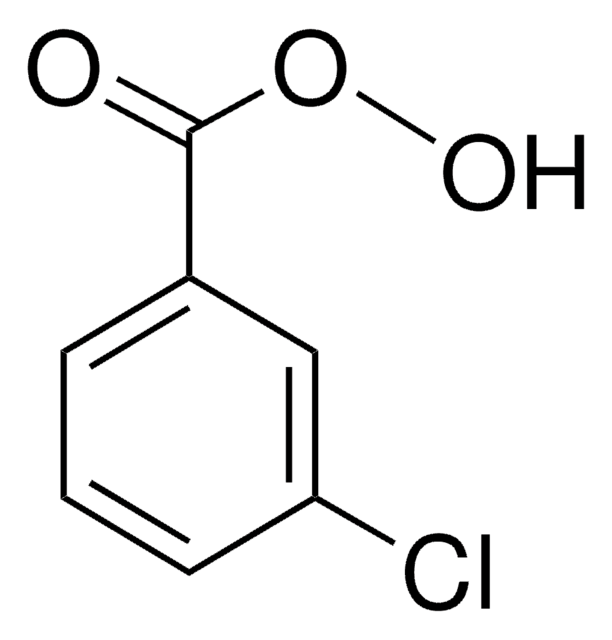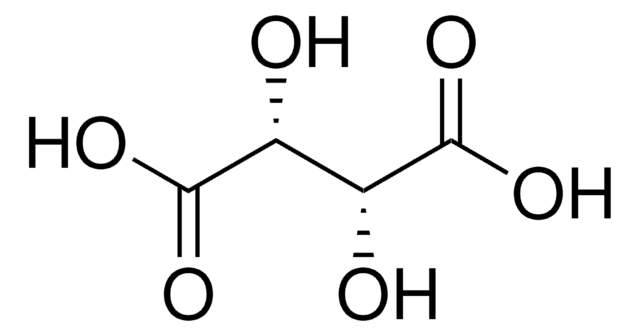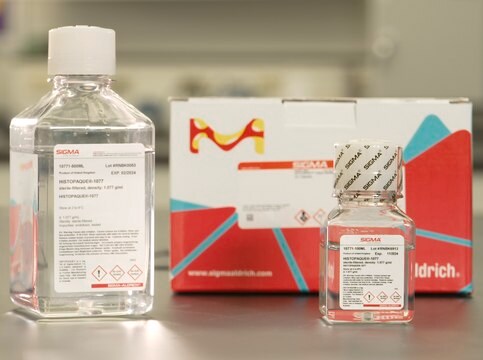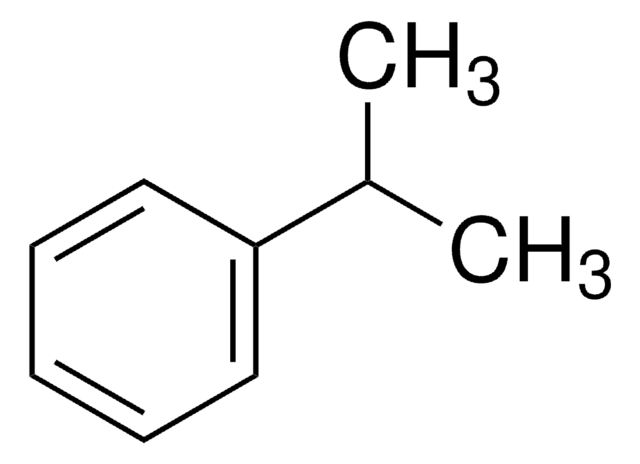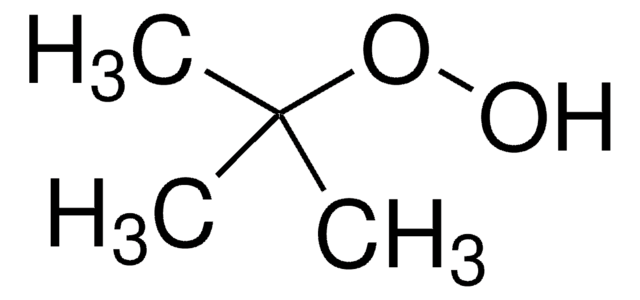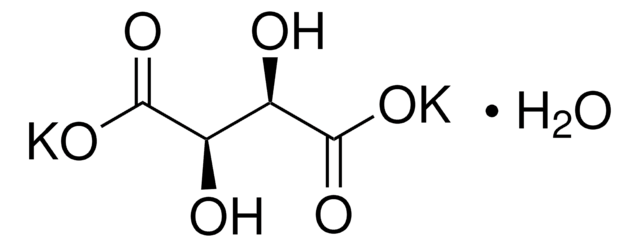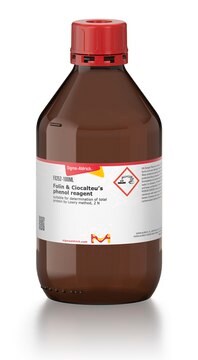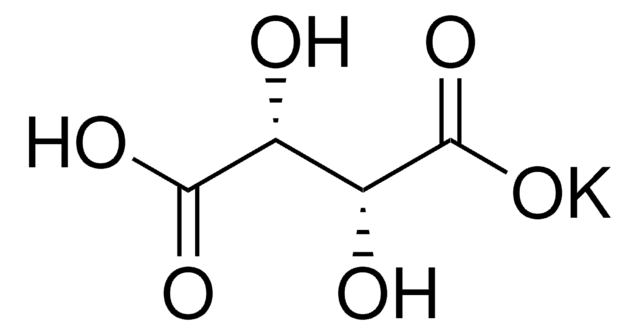243531
Potassium L-tartrate monobasic
99%
Synonym(s):
KHT, L(+)-Tartaric acid monopotassium salt, Potassium bitartrate, Potassium hydrogen L-tartrate, Potassium hydrogen tartrate, Tartaric acid monopotassium salt
About This Item
Recommended Products
assay
99%
form
powder
optical activity
[α]20/D +10°, c = 2 in 10% HCl
density
1.954 g/mL at 25 °C (lit.)
functional group
carboxylic acid
hydroxyl
SMILES string
[K+].O[C@H]([C@@H](O)C([O-])=O)C(O)=O
InChI
1S/C4H6O6.K/c5-1(3(7)8)2(6)4(9)10;/h1-2,5-6H,(H,7,8)(H,9,10);/q;+1/p-1/t1-,2-;/m1./s1
InChI key
KYKNRZGSIGMXFH-ZVGUSBNCSA-M
Looking for similar products? Visit Product Comparison Guide
General description
Application
Storage Class
11 - Combustible Solids
wgk_germany
WGK 1
flash_point_f
410.0 °F
flash_point_c
210 °C
ppe
Eyeshields, Gloves, type N95 (US)
Choose from one of the most recent versions:
Already Own This Product?
Find documentation for the products that you have recently purchased in the Document Library.
Customers Also Viewed
Our team of scientists has experience in all areas of research including Life Science, Material Science, Chemical Synthesis, Chromatography, Analytical and many others.
Contact Technical Service